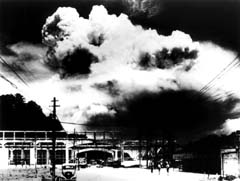As Harsh as Truth and as Uncompromising as Justice
The Rally to Elevate Tone of Voice Over Substance. On ALLiance (2010-11-16):
So Jon Stewart had his rally the other day. From what I can tell, it was a great promotional event for his TV show and a great party for a lot of college-educated people. Don't get me wrong; I love Jon Stewart, love the Daily Show, and I love the…
As Jeremy puts it: “I suppose only a loudmouth boor would point out that these policies kill, maim, imprison, plunder, and deceive people everyday – but really, we should keep our voices down! For the country!”
The problem with the National Discourse is not extremism or severity, but thoughtlessness, and the Discourse is thoughtless because it has been Nationalized — i.e., corralled by the limits of state policy and electoral politics, and subordinated to the ends of a thoughtless power-play between entrenched political parties. Thoughtlessness can take the form of blowhard shouting; or it can take the form of blowhard mealy-mouthed “moderation” and compromise for the sake of political comity. The last is, right now, the primary rhetorical function of liberal discourse — to portentiously utter conventional wisdom, half-hearted excuses, and Beltway political nostrums, in Sensible, modulated tones, so as to establish a perimeter of acceptable opinion which falls roughly within the range of opinions among Barack Obama’s political advisors, with Sarah Palin or John Boehner as the only recognized outliers.
Fuck that noise. Real thoughtfulness means principled thoughts, and having principled thoughts means being willing to accept, and insist on, radical thoughts when they are called for. Hopelessly confused moderation is simply the political etiquette of the status quo, and a dare-I-say immensely privileged refusal to seriously confront the problem of the entrenched power and daily violence of the endlessly self-excusing corporate liberal state. Radical thoughtfulness has no special reason to accept those excuses or defer to the conventional idiocy that limns the boundaries of political liberal and political conservative discourse alike. The only way out is a discourse that is not nationalized, but humanized; and human discourse requires some real talk about what the imperial state — its armies, its wars, its laws, its police, its checkpoints, its borders, its political lies — is doing to real people every single day in their real lives, while bellowing blowhards argue about Reviews of Strategy, Comprehensive Reform, Border Security, Economic Recovery, National Security, National Priorities, and the rest of the utterly dehumanized talking-point discourse that characterizes politics in all of its nationalized forms. Sometimes that will look like rudeness. Sometimes it will involve calling a politician a liar — and a killer to boot. And all for the better: who are these assholes, that they would deserve anything more polite? Radical thoughtfulness requires, above all else, a will to honesty. And honestly, the truth right now isn’t very pretty.






